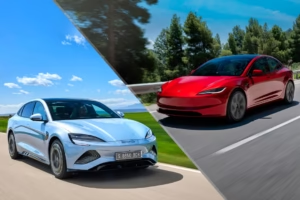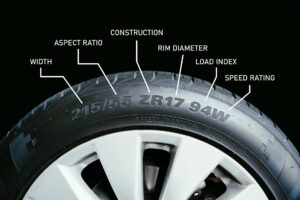Lucid Motors, renowned for its luxury electric vehicles like the Air sedan, is now setting its sights on a new frontier. This means that Lucid Motors’ affordable EVs are not just a fantasy. With plans to launch models priced around $50,000, Lucid aims to make high-performance, technologically advanced electric cars accessible to a broader audience. This bold move positions Lucid as a formidable competitor in the EV market, directly challenging established players like Tesla. As the company transitions from luxury to affordability, it remains committed to driving innovation and sustainability in the automotive industry.
Lucid’s Transition from Luxury to Affordability
Lucid Motors began its journey in the electric vehicle market with a focus on luxury, introducing high-end models like the Lucid Air and the upcoming Gravity SUV, both of which come with starting prices north of $80,000. These vehicles were designed to showcase Lucid’s cutting-edge technology and establish the brand as a leader in the premium EV space.
However, CEO Peter Rawlinson envisions a broader impact. He believes that to truly accelerate the transition to sustainable transportation, Lucid must make its advanced electric vehicles accessible to a wider audience. This shift in focus is driven by a strategic plan to first capture the luxury market, ensuring financial stability and brand recognition, before scaling down to offer more affordable, high-volume models that can compete directly with mainstream options like Tesla.

What Will Affordable Planned EV Models Bring to the Table
Lucid Motors is preparing to launch three new affordable electric vehicles (EVs) that will target the mid-size SUV and sedan segments. These models are designed to compete directly with Tesla’s Model Y and Model 3, offering high-tech features and advanced performance.
The planned lineup includes a mid-size crossover, a more rugged SUV, and a sedan. Each model is expected to blend Lucid’s signature luxury with a more accessible price point, making them highly competitive in the current EV market.
Price Range and Market Positioning of New EVs
Lucid’s upcoming models are expected to be priced around $50,000, a strategic move aimed at capturing a broader market. This price point places Lucid directly in competition with Tesla, particularly in the high-volume, mid-range EV market.
Despite the lower price, Lucid is committed to incorporating its advanced technology into these models, including efficient powertrains and innovative battery solutions. This approach ensures that Lucid’s affordable EVs will not only be competitively priced but also offer superior efficiency and performance, positioning them as strong contenders in the rapidly growing EV industry.

What Will Lucid’s Technological Edge Bring to Customers
Lucid Motors has consistently pushed the boundaries of EV technology, leveraging its in-house innovations to produce some of the most efficient electric vehicles on the market. Key to this is their proprietary powertrain components, which include advanced electric motors and inverters designed for maximum efficiency.
Additionally, Lucid’s battery chemistry allows for smaller, lighter batteries without compromising range. CEO Peter Rawlinson emphasizes that this focus on efficiency is not just about performance but also about reducing costs and making EVs more affordable without sacrificing quality or functionality. By achieving higher miles per kilowatt-hour, Lucid can offer vehicles that go farther with less energy, a critical factor in keeping production costs down and retail prices competitive.
Efficiency vs. Cost – How Do They Go Hand in Hand?
Lucid Motors is striking a careful balance between vehicle efficiency and cost-effectiveness, a strategy crucial for their success in the competitive EV market. By optimizing energy efficiency, Lucid can reduce the size of the battery packs required, which directly lowers production costs. This reduction in costs allows Lucid to price their vehicles more affordably while maintaining the performance and luxury that the brand is known for.
The impact of this approach is significant – it enables Lucid to reach a broader customer base without diluting the brand’s reputation for cutting-edge technology. As a result, the upcoming affordable models are poised to be strong contenders in the EV market, offering both value and advanced capabilities.

Production and Scaling Challenges Lucid Motors’ Affordable EVs Will Face
Lucid Motors faces significant challenges as it prepares to scale production for its more affordable vehicle line. Unlike its premium models, which were produced in smaller volumes, Lucid’s new mid-range EVs will require a substantial ramp-up in manufacturing. This challenge is amplified by the need to maintain high-quality standards while reducing costs.
Additionally, Lucid must navigate supply chain complexities and potential bottlenecks in battery production, all while competing with established players like Tesla, which already has extensive production capabilities.
How Does a Competitive Landscape Affect the Manufacturing?
Lucid enters a crowded market where established automakers like Tesla dominate the mid-range EV segment. To stand out, Lucid plans to leverage its technological innovations, such as superior energy efficiency and advanced powertrain systems.
These features are designed to offer better range and performance compared to competitors. Moreover, Lucid’s commitment to luxury and build quality, even in its more affordable models, will serve as a key differentiator. By combining advanced technology with competitive pricing, Lucid aims to carve out a niche in this highly competitive market.

How Will Lucid’s Vision Impact the EV Market
Lucid Motors is strategically positioned to revolutionize the EV market by making its luxury technology accessible to a broader audience through its upcoming affordable models. By combining cutting-edge efficiency with competitive pricing, Lucid aims to democratize advanced EV technology previously reserved for high-end models.
This approach not only broadens Lucid’s market reach but also sets a new standard for the industry. These vehicles have the potential to significantly influence the future of sustainable transportation, making electric vehicles more mainstream and accessible to a wider population.








